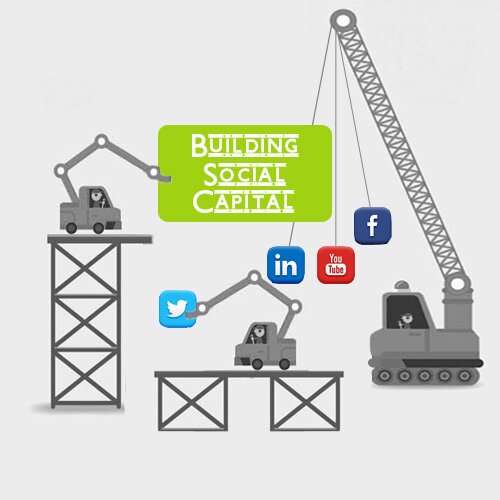
At the heart of everything Tempero does is the goal of building social capital and the ethos that a community is greater than the sum of its parts. That, given the right platform, people will conspire with each other to instigate social change, and that the social web facilitates – for the first time in human history – the opportunity for thinkers and activists from around the world to pool together in order to upset the status quo.
State of emergence
During the web 1.0 years this kind of thinking was confined to niche forums and community pages where likeminded movers and shakers would affect undercurrents of change. Web 2.0 brought with it MySpace, selfies, cyber-bullying, Lily Allen and, more crucially, a plethora of emerging platforms with the potential to empower individuals and communities to challenge the world order.
Twitter added a layer of accountability to politicians, governments and other public servants in the democratic world, and when combined with Facebook, facilitated mass public scrutiny of previously untouchable corporations. These new channels also enabled the immediate sharing and endorsement of important causes both locally and globally.
Crowdfunding platforms such as Indiegogo and Kickstarter allowed everyone and anyone to pitch for donations to help realise their big creative ideas. Activists generated funding for causes as diverse as building houses in Haiti, providing healthcare in rural Peru, knitting blankets for homeless kittens in Colorado, providing free education to marginalised youth in London and famously, paying for a vacation for a harassed bus monitor in New York.
Meanwhile, platforms such as SumOfUs.org and Change.org offered the opportunity to contest pretty much anything, from US government policy on Orca captivity and Obama’s stance on the Keystone XL pipeline, to specific wrongful workplace dismissals and controversial court rulings.
Agents of change
From the late 2000s onwards, hyper-targeted niche networks began to emerge, further empowering consumers. In 2008, Airbnb offered travellers an alternative to sterile and expensive hotel accommodation and TaskRabbit provided a marketplace for people to outsource odd jobs to locals in their neighbourhood.
In 2010, ParkatmyHouse allowed users to commoditise their private parking spaces and offered cheap parking for motorists. In 2012, BorrowMyDoggy matched dog-lovers who can’t commit to a full-time pet with owners who need a helping hand walking their canine pals. Meanwhile, Twickets – a client of Tempero’s – launched in 2013, promoting the ethical sale of spare ticket inventory and tackling touts and unethical resellers. These are just a few examples of social channels effecting social change and promoting community on and offline.
As Mashable’s Kate Sommers-Dawes put it: “While technology is often cited as a barrier to real human connection, it also unites people in a way that’s changing communities and individual lives, as well as how we do business. And it’s happening all over the country.”
Doing good
Clearly, consumers have quickly bought into the philosophy of social capital. A total of almost 6 million people have backed at least one Kickstarter pledge, with 1.7 million repeat contributors. In total, campaigns launched through Kickstarter alone have raised over $1 billion to date. Meanwhile, around 20 million people across 41 territories have signed a petition introduced by Avaaz, the global civic organisation, which launched in 2007, at least once.
Big brands are for the most part yet to capitalise on this border-transcending digital movement of goodwill, though there have been some exceptions.
RockCorps, a pro-social production company launched in 2005, have partnered with companies such as EE, BlackBerry, Sony Ericsson, Optus, and Boost Mobile to motivate over 80,000 young people to volunteer for charity programmes across five continents.
Meanwhile, Pepsi’s Refresh Everything Project of 2010 built and financed a community of non-profits and individuals championing innovation in social progress; and Skype’s ‘Skype in the Classroom’ programme supports a network of 80,000 teachers around the world who use the technology to broadcast classes to a global student audience.

These programmes have demonstrated that enabling people to do good things has a positive impact on brand attributes such as favorability, intent and trust.
In collaborating with their communities to do good stuff, brands have the opportunity to ‘build’ social capital. Each brand-enabled good deed represents a building block of communal good will, with an end-goal of sustainable affinity between brands and their consumers.




